Bell’s palsy is associated with paralysis of the facial nerve. It is thought to be caused by viral infection, but in many cases, the exact cause is unknown. Treatment typically involves high doses of steroids, facial exercises, and proper eye care to prevent dryness or irritation of the cornea. If there is no improvement within six weeks, surgery to relieve pressure on the facial nerve, called facial nerve decompression, may be necessary.

A perforated eardrum can result from trauma or an ear infection. If your eardrum is perforated, it’s crucial to keep your ear dry and avoid getting water inside it. Infections are treated with antibiotics. If the eardrum does not heal on its own, surgery called tympanoplasty may be required. This procedure involves grafting tissue to repair the eardrum.

Cholesteatoma is a serious condition where abnormal skin growth in the ear damages the bones of the middle ear. If left untreated, it can cause complications like hearing loss, dizziness, facial paralysis, or even a brain abscess. Cholesteatoma requires surgical treatment to remove the disease and avoid complications

A cochlear implant is a small electronic device surgically placed in the ear to help people with proofer hearing loss. It is especially useful for individuals born deaf (called congenital hearing loss) have hearing impairment, or have lost their hearing due to an accident, illness, or medication. The device works by sending sound signals directly to the hearing nerve, bypassing the damaged parts of the ear. After the implant surgery, patients typically undergo auditory-verbal therapy to help them interpret the sounds and improve their hearing skills.
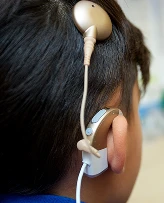
The Eustachian tube connects the middle ear to the back of the nose and helps equalize pressure between the ear and the outside environment. During air travel, particularly during takeoff and landing, rapid pressure changes can occur. If the Eustachian tube is blocked or not functioning well, you may feel a sense of heaviness, blocked ears, or even pain. Chewing gum, swallowing frequently, or yawning during takeoff and landing can help keep the tube open and reduce discomfort.

Ear wax is a natural secretion of the ear that protects it from infections caused by bacteria and fungi. The ear has a natural self-cleaning mechanism, so there is usually no need to clean it with cotton swabs or earbuds. In fact, using earbuds can push wax deeper into the ear, causing blockage, pain, or hearing loss. If your ear becomes blocked with wax, consult an ENT specialist to have it safely removed.
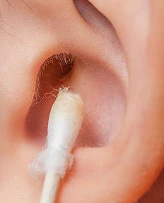
The inner ear has two main functions: hearing and maintaining balance. Balance is controlled by the vestibular system, which includes fluid-filled canals. In Meniere’s disease, the pressure of this fluid increases, causing episodes of hearing loss, tinnitus (a ringing or buzzing sound in the ear), and vertigo (a spinning sensation). Proper evaluation is needed for accurate diagnosis and staging of the disease. Without adequate treatment, Meniere’s disease can lead to permanent hearing loss.
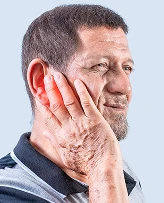
Our balance system relies on input from three sources: the eyes, ears, and joints/muscles. These inputs help the brain maintain balance. When travelling by road or boat, the brain may receive conflicting signals, leading to dizziness or nausea. This is known as motion sickness. Medications can prevent motion sickness, and vestibular rehabilitation therapy can help reduce its severity.

Sensorineural hearing loss occurs due to reduce function of the hearing nerve. It can be present from birth (congenital) or develop later due to loud noise exposure, injury, infections, certain medications, or aging. This type of hearing loss is often treated with hearing aids. Cochlear implants may be recommended for profound hearing loss that doesn’t respond to hearing aids.
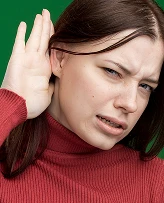
Sudden hearing loss can happen at any age and is considered a medical emergency. Treatment should begin as soon as possible, usually with steroid injections directly into the ear (intratympanic injections) and oral medications. This approach delivers a high dose of medicine directly to the affected area without significant side effects. Treatment is most effective if started within 15 days of onset.
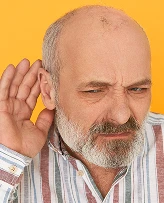
Tinnitus is the perception of sound, such as humming or buzzing, in the ear when no external sound is present. A proper evaluation is needed to determine hearing levels and the nature of the sound. Cognitive behavioral therapy (CBT) is useful in tinnitus pts. Patients with hearing loss who experience tinnitus may benefit from using hearing aids.
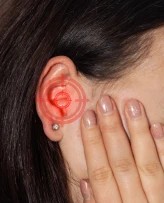
Bell’s palsy is associated with paralysis of the facial nerve. It is thought to be caused by viral infection, but in many cases, the exact cause is unknown. Treatment typically involves high doses of steroids, facial exercises, and proper eye care to prevent dryness or irritation of the cornea. If there is no improvement within six weeks, surgery to relieve pressure on the facial nerve, called facial nerve decompression, may be necessary.
A perforated eardrum can result from trauma or an ear infection. If your eardrum is perforated, it’s crucial to keep your ear dry and avoid getting water inside it. Infections are treated with antibiotics. If the eardrum does not heal on its own, surgery called tympanoplasty may be required. This procedure involves grafting tissue to repair the eardrum.
Cholesteatoma is a serious condition where abnormal skin growth in the ear damages the bones of the middle ear. If left untreated, it can cause complications like hearing loss, dizziness, facial paralysis, or even a brain abscess. Cholesteatoma requires surgical treatment to remove the disease and avoid complications
A cochlear implant is a small electronic device surgically placed in the ear to help people with proofer hearing loss. It is especially useful for individuals born deaf (called congenital hearing loss) have hearing impairment, or have lost their hearing due to an accident, illness, or medication. The device works by sending sound signals directly to the hearing nerve, bypassing the damaged parts of the ear. After the implant surgery, patients typically undergo auditory-verbal therapy to help them interpret the sounds and improve their hearing skills.
The Eustachian tube connects the middle ear to the back of the nose and helps equalize pressure between the ear and the outside environment. During air travel, particularly during takeoff and landing, rapid pressure changes can occur. If the Eustachian tube is blocked or not functioning well, you may feel a sense of heaviness, blocked ears, or even pain. Chewing gum, swallowing frequently, or yawning during takeoff and landing can help keep the tube open and reduce discomfort.
Ear wax is a natural secretion of the ear that protects it from infections caused by bacteria and fungi. The ear has a natural self-cleaning mechanism, so there is usually no need to clean it with cotton swabs or earbuds. In fact, using earbuds can push wax deeper into the ear, causing blockage, pain, or hearing loss. If your ear becomes blocked with wax, consult an ENT specialist to have it safely removed.
The inner ear has two main functions: hearing and maintaining balance. Balance is controlled by the vestibular system, which includes fluid-filled canals. In Meniere’s disease, the pressure of this fluid increases, causing episodes of hearing loss, tinnitus (a ringing or buzzing sound in the ear), and vertigo (a spinning sensation). Proper evaluation is needed for accurate diagnosis and staging of the disease. Without adequate treatment, Meniere’s disease can lead to permanent hearing loss.
Our balance system relies on input from three sources: the eyes, ears, and joints/muscles. These inputs help the brain maintain balance. When travelling by road or boat, the brain may receive conflicting signals, leading to dizziness or nausea. This is known as motion sickness. Medications can prevent motion sickness, and vestibular rehabilitation therapy can help reduce its severity.
Sensorineural hearing loss occurs due to reduce function of the hearing nerve. It can be present from birth (congenital) or develop later due to loud noise exposure, injury, infections, certain medications, or aging. This type of hearing loss is often treated with hearing aids. Cochlear implants may be recommended for profound hearing loss that doesn’t respond to hearing aids.
Sudden hearing loss can happen at any age and is considered a medical emergency. Treatment should begin as soon as possible, usually with steroid injections directly into the ear (intratympanic injections) and oral medications. This approach delivers a high dose of medicine directly to the affected area without significant side effects. Treatment is most effective if started within 15 days of onset.
Tinnitus is the perception of sound, such as humming or buzzing, in the ear when no external sound is present. A proper evaluation is needed to determine hearing levels and the nature of the sound. Cognitive behavioral therapy (CBT) is useful in tinnitus pts. Patients with hearing loss who experience tinnitus may benefit from using hearing aids.